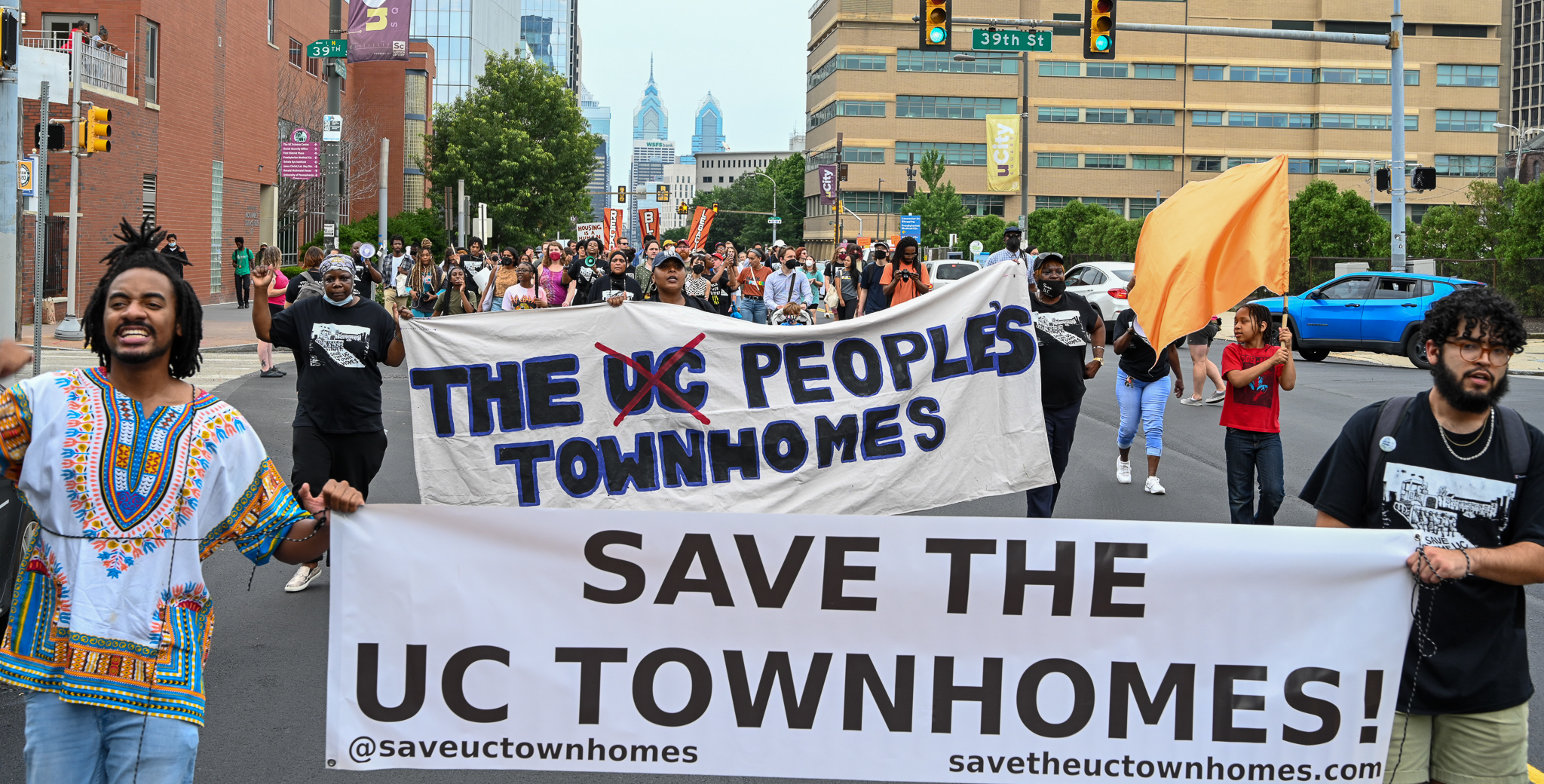U.S. plagued by lack of affordable housing

UC Townhomes residents and supporters march for affordable housing, April 2022.
This talk was presented at the May 11 webinar: “U.S. Women need what Cuban Women have: Socialism” sponsored by Workers World Party’s Women and Gender Oppressed Caucus.
I want to dedicate my remarks on housing tonight to Jordan Neely, the Black houseless subway entertainer murdered May 1 on a New York City subway by a white vigilante. Neely’s death drives home the trauma of being mentally disabled and without shelter that all too many people in the U.S. suffer, especially if they are Black.
My remarks tonight will not be discussing housing in Cuba. It’s almost impossible to find unbiased information on housing in Cuba in U.S. media.
Here is a link to an article by a Portland comrade, Danny O’Brien, who visited Cuba and who writes on housing and the question of houseless people there: workers.org/2023/01/68739/.
However, when we look at housing in the U.S., it is easier to understand why the media here doesn’t want us to know how Cuba handles housing.
The lack of affordable housing in the U.S. and most capitalist countries has only intensified with the COVID-19 pandemic. Across the U.S., rents increased by around 25% since early 2020. Median rents were already over $2,000 per month by July 2020, when it was estimated that nearly 40 million people in the U.S. could not afford their current living situation. If they were housed at all, most spent nearly half of their income on housing. Many were households headed by single women.
Federal programs for rental assistance ended today [May 11], with nothing set up to prevent widespread evictions.
Housing activists estimate that 7.2 million new affordable housing units are needed. Yet the 2020 Census found that one in 10 existing homes are vacant. The federal government alone owns an estimated 45,000 underutilized buildings. The problem is a shortage of homes that are both livable and with rents that working and poor people can afford.
UC Townhomes just one example of enormous housing crisis
For decades, 400 low-income residents of the University City Townhomes in Philadelphia enjoyed the security of community in apartments where rent was subsidized through the Department of Housing and Urban Development (HUD), set at 30% of one’s income or less. All that changed in October 2021, when the billionaire property owner decided to sell the land to developers for $100 million.
In January 2022, Mayor Jim Kenney signed a Philadelphia City Council bill requiring any new residential building of 20 units or more to set aside 20% of those units for affordable housing, meaning rent can be no more than 60% of income. Yet even if some affordable units are included in any construction at the Townhomes site, this definition of affordability excludes the current residents who are demanding their right to return.
UC Townhomes residents are not alone. There is a looming eviction crisis developing countrywide, which reflects the failure of this capitalist government to take steps necessary to provide adequate affordable housing for millions in need.
In 2018, before COVID-19, only 3.6 million eviction cases were filed in the entire year. The U.S. Census Bureau now estimates that 3.8 million tenants could be evicted every two months. Meanwhile, wait lists for affordable housing units, especially for families or seniors, stretch years into the future.
The battle waged by Townhomes residents since late 2021, led primarily by Black women, has launched a citywide fight-back for affordable housing which includes tenant activist groups and communities struggling against gentrification, like the Save Chinatown coalition. Students at the University of Pennsylvania and Drexel University have turned out in significant numbers to support the low-income tenants, who have been impacted by decades of the two universities’ gentrification of historic Black and Brown neighborhoods surrounding the campuses.
Their heroic fight-back brought these divergent communities together and has raised awareness that there is no solution under the profit-driven housing market under capitalism. In supporting these struggles, our task is to raise awareness that socialism does offer a solution and is worth fighting for.

